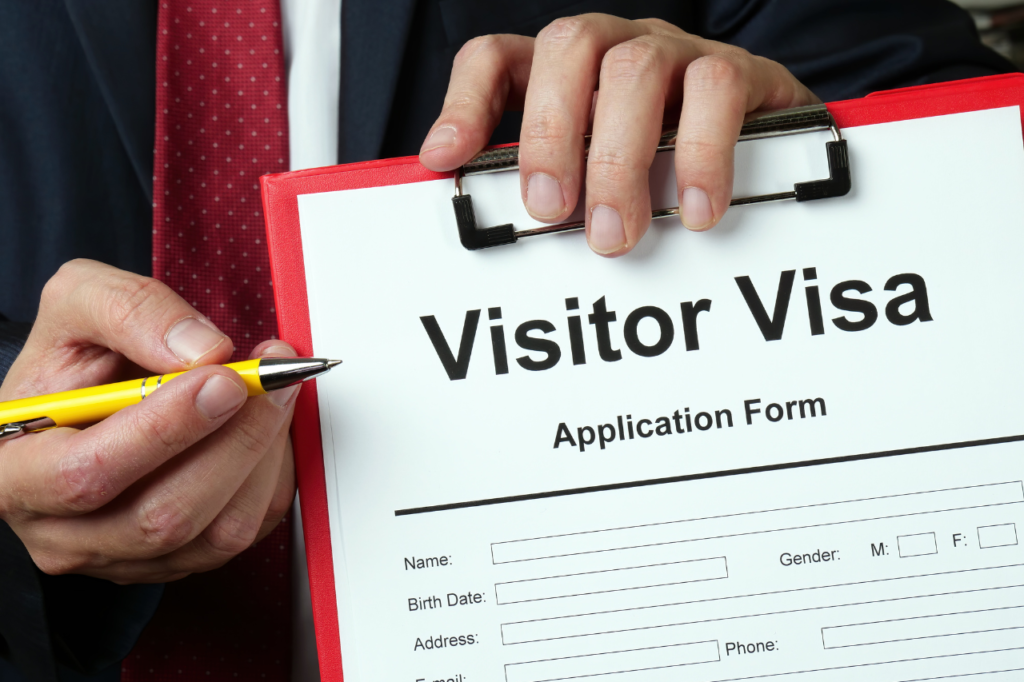The Italy Visit Visa is essential for individuals wishing to travel to Italy for various purposes, such as tourism, business, or visiting family. This visa is particularly relevant for those who are not citizens of countries that enjoy visa-free access to Italy. The primary categories of travelers needing this visa include tourists, business professionals, and individuals visiting family members.
There are primarily two types of Italy Visit Visas: the Short Stay Schengen Visa, which allows stays of up to 90 days within 180 days, and the Long Stay Visa, intended for those planning to stay longer for purposes such as work or study. The Schengen Visa enables travel not only in Italy but also across other Schengen Area countries, making it a versatile option for travelers.
Eligibility Criteria for Italy Visit Visa
To be eligible for an Italy Visit Visa, applicants must fulfill specific criteria. Firstly, they must possess a valid passport that meets the Schengen requirements: it should be issued within the last ten years, have at least two blank pages, and be valid for at least three months beyond the intended departure date from Italy.
Required documentation includes:
- A completed visa application form.
- Recent passport-sized photographs.
- Proof of travel plans (flight reservations).
- Evidence of accommodation (hotel bookings or rental agreements).
- Proof of sufficient financial means to support oneself during the stay.
- Travel health insurance covering medical emergencies in the Schengen area.
There are generally no age restrictions; however, minors may require additional documentation, such as consent from non-traveling parents5. Health insurance is mandatory and must cover at least €30,000 in medical expenses and repatriation.
Types of Italy Visit Visas
Tourist Visa
The Tourist Visa is designed for individuals traveling for leisure purposes. It allows stays of up to 90 days within six months. Applicants must provide documentation such as travel itineraries, proof of accommodation, and financial means.
Business Visa
The Business Visa caters to professionals traveling for business-related activities like meetings or conferences. Required documents include an invitation letter from the Italian host company and proof of prior business relations if applicable.
Family Visit Visa
The Family Visit Visa is intended for those visiting family members residing in Italy. Applicants must provide proof of relationship and may need an invitation letter from their family member.
Cultural, Sports, or Conference Visa
This visa is designed for individuals attending cultural events, sports competitions, or conferences. Applicants need an invitation from the event organizer along with details about the event schedule and participation confirmation.
Other Special Visas
Additional categories exist for specific needs:
- Medical Treatment Visa: For individuals seeking medical care in Italy.
- Study Tours Visa: For educational purposes or short-term study programs.
These special visas have tailored requirements based on their specific intent.
Required Documents for Italy Visit Visa Application
When applying for an Italy visit visa, several essential documents are required to ensure a smooth application process. Below is a comprehensive list of the necessary documents:
- Passport and Photocopies: A valid passport issued within the last ten years is mandatory. It should have at least two blank pages and be valid for three months beyond your planned departure from the Schengen area. Photocopies of previous visas may also be required.
- Visa Application Form: The application form must be completed accurately. It can be downloaded from the official website of the Italian consulate or embassy in your country. Ensure that it is signed and dated before submission.
- Recent Passport-Sized Photographs: You will need two identical passport photos that meet Schengen requirements—35x45mm in size, colored, and taken within the last six months.
- Proof of Accommodation: This can include hotel bookings or an invitation letter from a host in Italy. Ensure that the accommodation covers your entire stay.
- Proof of Sufficient Financial Means: Applicants must provide evidence of financial stability, such as recent bank statements or salary slips, to demonstrate they can support themselves during their stay.
- Travel Insurance: A travel insurance policy covering medical emergencies within the Schengen area is mandatory. It should have a minimum coverage of €30,000.
- Flight Itinerary and Travel Bookings: Include a detailed itinerary of your travel plans, which can be a flight reservation rather than a confirmed ticket.
- Invitation Letter (if applicable): If you are visiting friends or family, include an invitation letter detailing your relationship and the purpose of the visit.
How to Apply for an Italy Visit Visa
Applying for an Italy visit visa involves several steps:
- Download and fill out the visa application form.
- Gather all required documents.
- Schedule an appointment at the nearest Italian consulate or Visa Application Center.
- Submit your application along with the visa fee.
Online Application Process vs. In-Person:
Some applicants may have the option to apply online, while others might need to submit their applications in person at designated centers.
Where to Submit the Application:
Applications can be submitted at the Italian consulate/embassy or through a Visa Application Center, depending on your location.
Appointment Booking Process:
It’s essential to book an appointment ahead of time, as walk-in applications may not be accepted.
Visa Fees and Payment Methods:
Fees vary based on visa type and nationality; payment methods typically include cash, credit/debit cards, or bank transfers.
Processing Time for Italy Visit Visa
Understanding the processing time for an Italy visit visa is crucial for planning your trip:
- Standard Processing Times: Generally, visa processing takes about 15 calendar days from the date of submission. However, this can vary based on individual circumstances and peak travel seasons.
- What to Do if There’s a Delay: If your application is delayed beyond the standard processing time, you can contact the consulate or Visa Application Center for updates.
- Expedited Processing (if available): Some consulates may offer expedited processing for an additional fee, allowing quicker visa issuance in urgent cases
Visa Interview Process for Italy
The visa interview is a crucial step in the application process for an Italy Visit Visa. Applicants can expect to be interviewed in person at the Italian consulate or embassy, where they will be asked a series of questions to assess their eligibility and intent. The interview typically lasts between 10 to 15 minutes and covers various aspects of the applicant’s travel plans, financial situation, and personal background.
What to Expect in the Visa Interview
During the interview, applicants should be prepared to present their documentation, including their passport, visa application form, and any supporting materials. The visa officer will check these documents for authenticity and completeness. It is essential to arrive on time and dress appropriately to make a positive impression.
Common Questions Asked During the Interview
Applicants should anticipate questions such as:
- What is the purpose of your trip to Italy?
- How long do you plan to stay?
- Where will you be staying during your visit?
- How will you fund your trip?
These questions aim to gauge the applicant’s intentions and ensure they have a clear plan for their stay in Italy.
Tips for a Successful Visa Interview
To enhance the chances of approval, applicants should:
- Prepare Thoroughly: Familiarize yourself with potential questions and have all necessary documents organized.
- Be Honest and Direct: Answer all questions truthfully and succinctly; avoid unnecessary details.
- Stay Calm: Manage nerves by practicing responses beforehand.
- Dress Formally: Present yourself professionally to convey seriousness about your application.
Italy Visa Fee Breakdown
Understanding the Italy visa fee structure is vital for applicants. The fees vary based on several factors, including age and visa type.
Visa Fee Structure
- Adults (over 12 years): Approximately €80
- Children (6-12 years): Approximately €40
- Children under 6 years: Free
- Multiple Entry Visa: Higher fees may apply depending on the duration and purpose.
Payment Methods Accepted
Visa fees can typically be paid through various methods, including:
- Credit or debit cards
- Bank transfers
- Cash (in some locations)
It is advisable to check with the specific consulate or embassy for accepted payment methods.
Refund Policy in Case of Visa Refusal
In case of visa denial, applicants should be aware that visa fees are generally non-refundable. However, certain circumstances may allow for a partial refund if specific administrative fees were not incurred. Always consult the consulate’s guidelines regarding refunds.
Italy Visa Refusal and Appeal Process
Receiving a visa refusal can be disheartening, but understanding common reasons for denial and how to appeal can help applicants navigate this situation effectively.
Common Reasons for Visa Denial
Some frequent reasons for refusal include:
- Incomplete or inaccurate documentation
- Insufficient financial means
- Lack of clear travel plans
- Concerns about the applicant’s intent to return home after their visit
How to Handle a Refusal
If an application is denied, applicants have two main options:
- Appeal the Decision: This involves submitting a formal appeal letter along with any additional supporting documentation that addresses the reasons for the denial. The appeal process can take several weeks.
- Reapply: If appealing seems unfeasible, applicants may choose to reapply. It is crucial to rectify any issues that led to the initial refusal before reapplying.
What Steps to Take After Refusal
After receiving a refusal notice, applicants should:
- Carefully read the refusal letter to understand the reasons.
- Gather any additional documentation that could strengthen a future application.
- Consider seeking advice from immigration consultants or legal experts if needed.
Visa Processing and Approval Timeline
When applying for an Italy visit visa, understanding the processing timeline is crucial for effective travel planning. The typical processing time for a tourist visa is approximately 15 working days, although this can extend to 20 working days during peak travel seasons or due to specific circumstances related to your application. After submitting your application, the consulate will review all provided documents. If everything is in order, you can expect a decision within this timeframe.
Once your application is submitted, it undergoes several stages of processing. Initially, the consulate verifies that all required documents are complete and accurate. If any information is missing or incorrect, the application may be returned to you for corrections, which can significantly delay the process. Therefore, it’s essential to ensure that your application is thorough and well-prepared.
To track your visa status, many consulates provide an online tracking system where you can enter your application reference number. You may also contact the consulate directly for updates on your application status if needed. This feature allows you to stay informed about any changes or additional requirements that may arise during processing.
Travel Insurance for Italy Visit Visa
Travel insurance is a mandatory requirement when applying for an Italy visit visa as part of the Schengen area regulations. This insurance must cover medical emergencies, repatriation, and other unforeseen incidents during your stay in Italy. The minimum coverage required for the Italy visit visa is €30,000. This ensures that travelers have adequate financial protection against medical expenses or other emergencies while abroad.
Choosing a reputable insurance provider is essential. Some recommended insurance providers include Allianz Global Assistance, AXA Assistance, and World Nomads. These companies offer various plans that meet Schengen requirements and provide comprehensive coverage options tailored to travelers’ needs. It’s advisable to review different policies to select one that offers the best coverage based on your travel itinerary and personal circumstances.
How to Extend Your Italy Visit Visa
If you find yourself needing more time in Italy than initially planned, it is possible to extend your visit visa under certain conditions. You can apply for an extension while still in Italy; however, there are specific processes and requirements involved.
To extend your visit visa, you must submit a formal request at the local immigration office (Questura) before your current visa expires. This request should include valid reasons for the extension—such as medical issues or unforeseen circumstances preventing your departure—and must be accompanied by supporting documentation7. Additionally, you will need to provide proof of accommodation and financial means during the extended stay.
Extensions are granted at the discretion of immigration authorities and are typically considered under specific circumstances. Common reasons for approval include medical emergencies or significant delays in travel plans due to unforeseen events. Conversely, requests may be denied if they do not meet legal requirements or if the applicant fails to provide sufficient justification.
Things to Do After Arrival in Italy
Upon arrival in Italy, travelers must be aware of several important regulations and requirements to ensure a smooth entry process.
Registration Requirements
Depending on the length of stay and nationality, some visitors may need to register with local authorities. For stays exceeding 90 days, foreigners are required to apply for a residence permit within eight days of arrival. This typically involves visiting the local police station (Questura) and providing necessary documentation.
Italian Customs Regulations
Italy has strict customs regulations that travelers should familiarize themselves with. Upon entering the country, travelers must declare any goods that exceed duty-free allowances or are subject to restrictions. For example, travelers from non-EU countries can bring in up to 200 cigarettes or 1 liter of spirits without incurring duties. However, bringing in meat and dairy products is prohibited.
Proof of Accommodation and Financial Resources
At border control, travelers may be asked to provide proof of accommodation, such as hotel bookings or an invitation letter from a host. Additionally, it is essential to demonstrate sufficient financial means for the duration of the stay. This can include bank statements or cash. If unable to provide this information, entry could be denied.
Visa-Free Travel with an Italy Visa
One significant advantage of holding an Italy Visit Visa is the ability to travel freely within the Schengen Area. This visa not only facilitates entry into Italy but also allows for short visits to other member countries.
Benefits of an Italy Visit Visa in the Schengen Area
With an Italian visa, travelers can explore multiple countries without needing separate visas for each destination. The Schengen Area comprises 26 countries that have abolished passport control at their mutual borders, making travel more convenient. This visa is particularly beneficial for tourists wishing to experience various cultures and landscapes across Europe.
Countries That Can Be Visited with a Valid Italian Visa
Travelers holding a valid Italian visa can visit other Schengen countries such as France, Germany, Spain, and the Netherlands. However, it is crucial to ensure that the total time spent in all Schengen countries does not exceed 90 days within 180 days.
Frequently Asked Questions (FAQs)
What are the common reasons for visa refusals?
Visa applications may be denied due to incomplete documentation, insufficient financial means, or unclear travel intentions.
Can I appeal a visa refusal?
Yes, applicants can appeal a refusal by submitting additional documentation or clarifications regarding their situation.
Is it possible to obtain multiple entries with an Italy Visit Visa?
Yes, applicants can request a multiple-entry visa if they plan to travel in and out of Italy multiple times during their stay.
How long does it take to process an Italy Visit Visa?
Processing times can vary but typically range from 15 days to several weeks depending on individual circumstances and the consulate’s workload.
What should I do if my visa application is refused?
Review the refusal letter carefully to understand the reasons for the denial and consider either appealing the decision or reapplying with improved documentation.
Do I need travel insurance for my visit?
Yes, obtaining travel insurance covering medical emergencies and repatriation is mandatory when applying for an Italy Visit Visa.
Can I work while on an Italy Visit Visa?
No, this visa does not permit any form of employment; it is strictly for tourism or short visits.
Are there any age restrictions for applying?
Generally, there are no age restrictions; however, minors may require additional documentation such as parental consent.
Italy Visit Visa for Minors
When applying for an Italy visit visa for minors (children under 18), there are specific requirements that differ from those for adult applicants. These requirements ensure the safety and well-being of minors traveling internationally.
- Special Requirements for Children Under 18: The following documents are mandatory for minors applying for a visa:
- Birth Certificate: An original birth certificate along with a photocopy is required. If the document is issued outside of Italy, it must be translated into Italian or English and legalized by the relevant consulate.
- Parental Consent: A declaration granting permission to travel must be signed by both parents or legal guardians who are not accompanying the minor. This declaration should also include a statement of financial responsibility for the trip, which must be signed in front of a visa officer.
- Financial Responsibility: The parent assuming financial responsibility needs to provide recent employment verification and bank statements from the last three months.
- Assumption of Responsibility: A document signed by the adult accompanying the minor in Italy, confirming their responsibility during the stay.
- Visa Application Form: The application form must be completed and signed by both parents or guardians.
- Appointment Booking: Parents must register to book an appointment for applying.
These steps ensure that minors traveling to Italy have the necessary documentation and parental oversight.
Visa for Italian Family Members: How to Join Your Family in Italy
Family members of Italian residents may apply for a visa to join their relatives in Italy. This process is designed to facilitate family reunification.
Eligibility for Family Members of Italian Residents: Immediate family members, such as spouses, children, and dependent relatives, are eligible to apply for this type of visa. Eligibility extends to those who can prove their relationship with the Italian resident.
Required Documents and Application Process:
- Visa Application Form: Complete and sign the application form.
- Proof of Relationship: This can include marriage certificates, birth certificates, or adoption papers.
- Valid Passport: A passport valid for at least three months beyond the planned departure date from Italy.
- Proof of Accommodation: Evidence showing where you will stay in Italy, such as a rental agreement or invitation letter from your family member.
- Financial Means: Documentation demonstrating that you can support yourself financially during your stay.
- Health Insurance: Proof of travel health insurance covering medical emergencies within the Schengen area.
The application should be submitted at the nearest Italian consulate or embassy, where you may also need to attend an interview.
Travel Tips for Italy on a Visit Visa
Traveling to Italy on a visit visa can be an exciting experience filled with rich culture and beautiful landscapes. Here are some essential tips to enhance your visit:
Must-Visit Attractions and Destinations
- Rome: Explore iconic sites like the Colosseum, Vatican City, and Trevi Fountain.
- Florence: Discover Renaissance art at the Uffizi Gallery and visit the stunning Florence Cathedral.
- Venice: Experience the unique canals and historic architecture of this romantic city.
- Cinque Terre: Hike between picturesque coastal villages offering breathtaking views.
Local Customs and Etiquette
- Greetings: Italians typically greet with a handshake; close friends may kiss on both cheeks.
- Dining Etiquette: Wait for everyone to be served before starting your meal, and remember that tipping is appreciated but not obligatory.
- Dress Code: Italians take pride in their appearance; dressing well is important, especially when dining out or visiting churches.
Safety Tips and Cultural Guidelines
- Stay Aware of Your Surroundings: Keep an eye on personal belongings in crowded areas to avoid pickpocketing.
- Respect Local Customs: Familiarize yourself with local customs and traditions to show respect towards Italian culture.
- Emergency Numbers: Keep emergency numbers handy; 112 is the general emergency number across Europe.
Italy Visit Visa for Citizens of Different Countries
Visa requirements for entering Italy vary significantly based on nationality. Citizens from the European Union (EU), European Economic Area (EEA), and Switzerland enjoy visa-free travel, allowing them to stay for an unlimited duration. Similarly, around 60 countries, including the USA, Canada, Japan, and Australia, can enter Italy without a visa for up to 90 days within any 180 days. However, travelers must ensure their passports are valid for at least three months beyond their intended departure date from Italy.
For citizens of countries such as India, China, and Pakistan, a Schengen visa is mandatory. These travelers must apply at the nearest Italian consulate or embassy. The application process generally requires a valid passport, recent passport-sized photographs, proof of accommodation, and evidence of financial means to support their stay. Health insurance covering medical emergencies in the Schengen area is also necessary. Visa fees are typically €80 for adults and €40 for children aged 6-12, with no charge for children under six.
Special considerations may apply depending on the applicant’s nationality. For example, some countries may face longer processing times or additional documentation requirements due to diplomatic relations or security concerns.
Important Things to Know Before Applying for Italy Visit Visa
Before applying for an Italy visit visa, it is crucial to be well-prepared to avoid common pitfalls that could delay or jeopardize your application.
Pre-Application Tips:
- Check Visa Requirements: Verify if your nationality requires a visa by consulting the Italian Ministry of Foreign Affairs website.
- Gather Documentation Early: Collect all necessary documents ahead of time. This includes your passport, photographs, proof of accommodation, financial statements, and travel insurance.
- Complete the Application Form Accurately: Ensure that all information is filled out correctly and matches your supporting documents.
Common Mistakes to Avoid During the Application Process:
- Incomplete Applications: Failing to provide all required documents can lead to delays or rejections.
- Incorrect Photo Specifications: Ensure your passport-sized photographs meet Schengen requirements regarding size and quality.
- Last-Minute Applications: Apply well in advance of your travel date to account for potential processing delays.
To ensure you meet all visa requirements:
- Review the specific requirements based on your nationality and purpose of travel.
- Double-check that your passport is valid for at least three months beyond your planned departure from Italy.
- Confirm that your health insurance covers medical emergencies in the Schengen area.
How Law and Visas Can Help?
At Law and Visas, our team of expert immigration consultants is here to make your travel to Italy straightforward and successful. Whether you’re applying for a Long Stay Visa or a Student Visa, we handle every step—from preparing your application to gathering the required documents.
Our Immigration Consultants and Lawyers ensure that your application meets the highest standards, with no details missed. We’ll also keep you informed throughout the process and coordinate with the immigration office or embassy on your behalf.
Law and Visas have a strong record of helping clients secure the visas/permits they need to visit Italy. You can call us today at +234 812 5505 986 to learn how we can help you.





